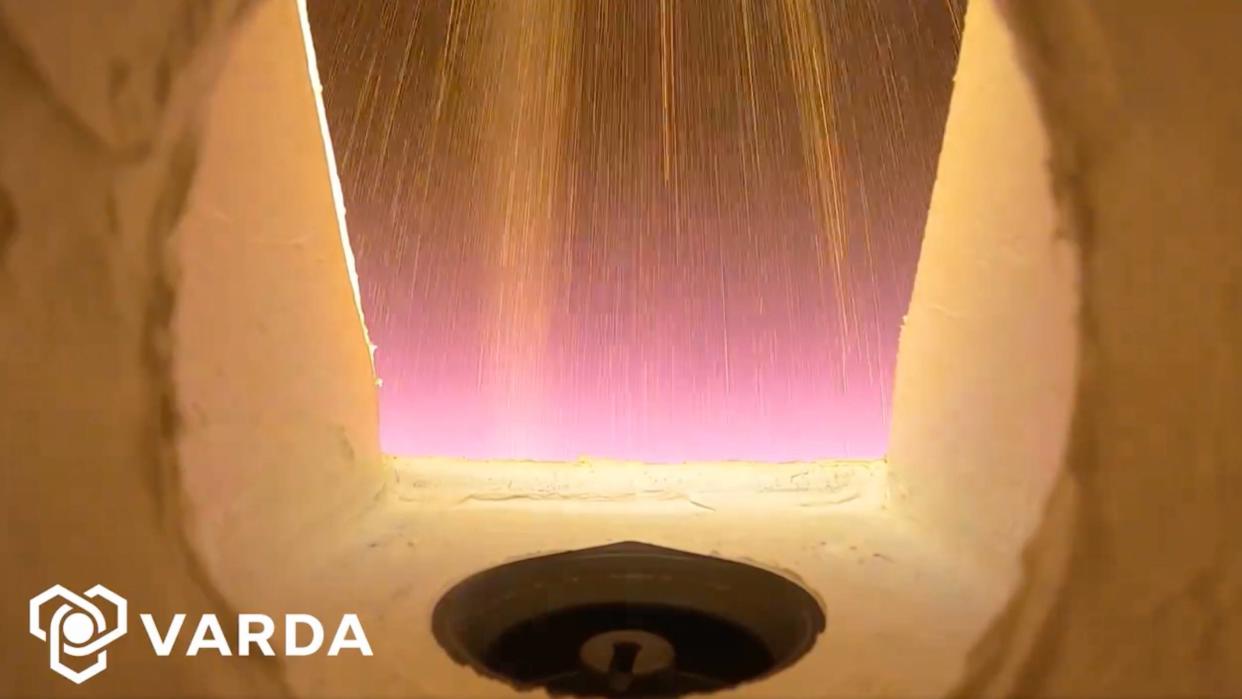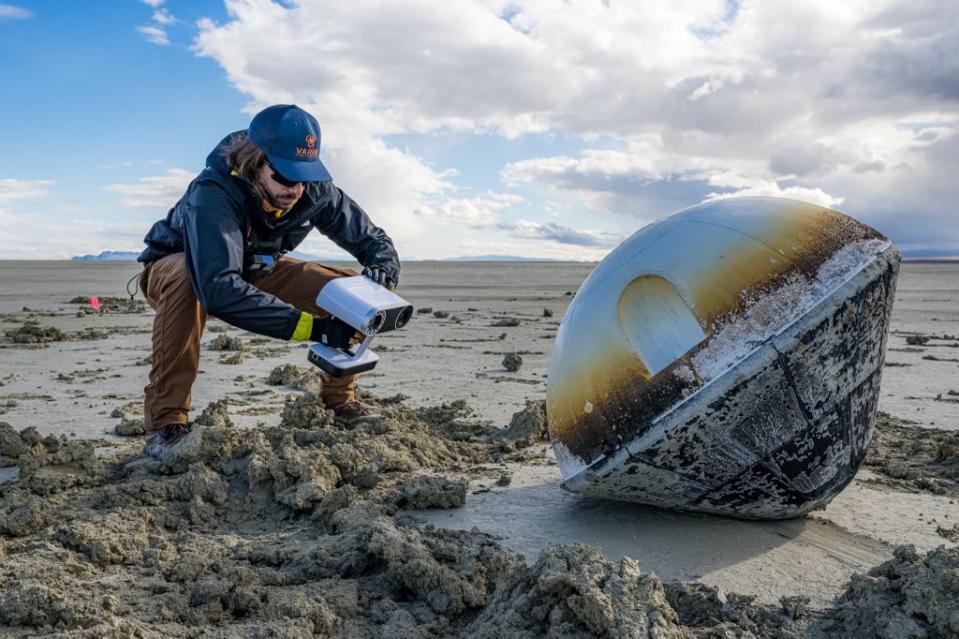'Them space drugs cooked real good:' Varda Space just made an HIV medicine in Earth orbit

On Feb. 21, after some seven months in space, Varda Space Industries' W-1 capsule successfully returned to Earth, carrying with it a unique payload: the HIV/AIDS medication ritonavir.
Varda Space seeks to autonomously manufacture pharmaceuticals in microgravity, a strategy that could ultimately reduce the cost of life-saving drugs — and, according to a new preprint paper, the company is one step closer to achieving that goal.
The W-1 mission sought to test the feasibility of making therapeutics in space, testing Varda's hardware off Earth for the first time. During its time in orbit, the W-1 capsule successfully crystalized the metastable Form III of the antiviral drug ritonavir, which then survived its return to Earth. The space-processed ritonavir has since been analyzed, and per an X post by Varda Space cofounder Delian Asparouhov, "[t]hem space drugs cooked real good."
Related: See Varda Space's private in-space manufacturing capsule's historic return to Earth in photos
The mission's data, now published in the preprint paper, also provides crucial information about the effects of spaceflight and reentry — such as vibration, acceleration, radiation and temperature — on the pharmaceutical-production process.
"By providing a detailed experimental dataset centered on survivability, we pave the way for the future of in-space processing of medicines that enable the development of novel drug products on Earth and benefit long-duration human exploration initiatives," states the paper's abstract.

RELATED STORIES:
— Off-Earth manufacturing could help astronauts explore the moon and Mars
— In-space manufacturing could help humanity fight climate change, startup says
— New drug shows potential to aid astronauts during future missions to moon and Mars
While pharmaceuticals have been processed in microgravity on parabolic flights and the International Space Station, Varda Space's method aims to be more efficient and cost-effective, using uncrewed capsules that serve dual purposes as a mini-factory and a reentry vehicle.
The company now hopes to inspire others to consider the viability of space-processed pharmaceuticals. "Together with our hypergravity platform, Varda’s rapidly advancing the landscape for drug development using microgravity," wrote Varda Space in a thread on X. "Our mission is to now enable cost-effective high-cadence access to enable next-generation therapeutics."

